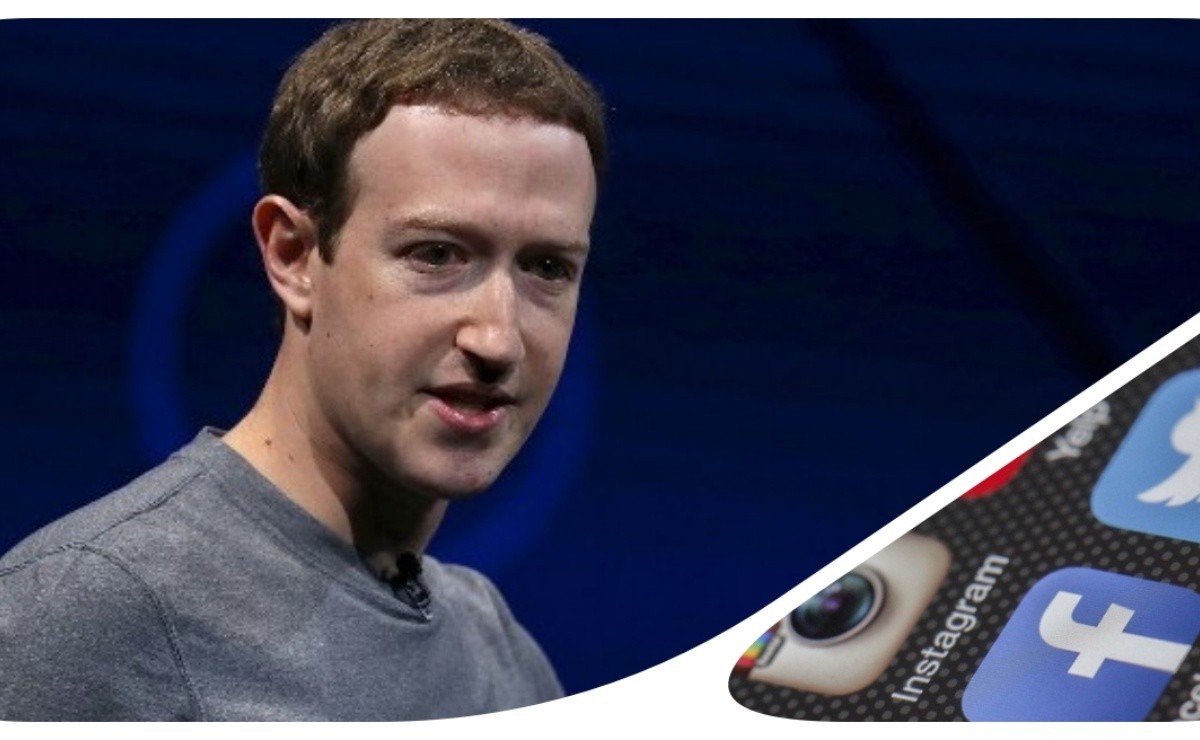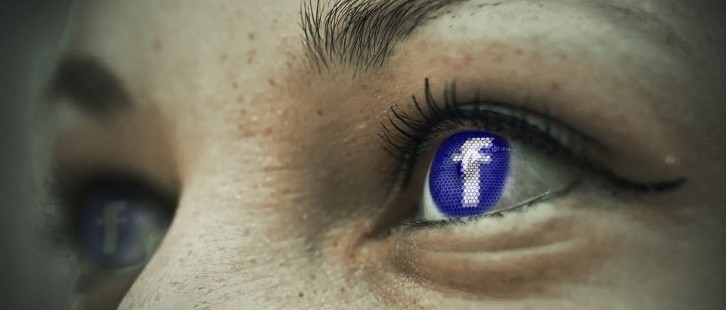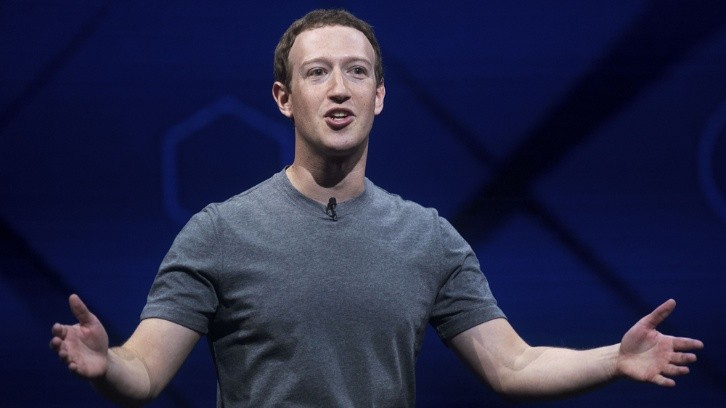
Mark Zuckerberg’s plan is for Facebook’s underlying technical infrastructure – WhatsApp, Instagram to unify
Facebook CEO Mark Zuckerberg plans to integrate Facebook’s proprietary messaging services – WhatsApp, Instagram and Facebook Messenger – to assert control over the company’s extensive divisions at a time when his business has been affected by scandals.
The services will continue to operate as separate applications, but their underlying technical infrastructure will be unified, said four people involved in the initiative.
That will unite three of the world’s largest messaging networks, totaling more than 2.6 billion users, allowing people to communicate across the platforms for the first time.

The decision requires thousands of Facebook employees to reconfigure the way WhatsApp, Instagram and Facebook Messenger work at their most basic levels. Facebook is still in the early stages of works and plans to complete the unification by the end of this year or early 2020, the people involved said.
Zuckerberg has also mandated that all apps incorporate end-to-end encryption, they noted, a significant measure so that messages can only be viewed by participants in a conversation.
Union of application infrastructure
Zuckerberg wants to increase the utility of the social network by keeping the billions of users immersed in its ecosystem. If people turn to Facebook-owned apps for texting more regularly, they might ditch rival messaging services like Apple and Google. If users interact more frequently with Facebook applications, the company might also be able to improve its advertising business or add new services to generate profits, the people added.
In a statement, Facebook said it wanted to “create the best possible messaging experience; people want to send messages quickly, easily, reliably and privately ”. He added: "We are working on making our messaging products have end-to-end encryption and we are figuring out how to make it easier to communicate with friends and family between one network and another."
Zuckerberg’s decision to have more control over Facebook’s separate businesses comes after two years of scrutiny of its core network, which has been criticized for allowing election interference and the dissemination of misinformation. These and other problems have slowed Facebook’s growth and damaged its reputation; Lawmakers and regulators around the world are on the alert. Zuckerberg has repeatedly apologized and promised to fix the problem.

Merging the Facebook apps is a drastic setback to Zuckerberg’s previous stance on WhatsApp and Instagram, which he acquired as separate companies. When the purchase happened, Zuckerberg promised that WhatsApp and Instagram would have a lot of autonomy from their parent company. (Facebook Messenger was an original messaging service, derived from the main Facebook app in 2014).
Since then, WhatsApp and Instagram have grown a lot, so Zuckerberg changed his mind, one of the people said. The CEO now believes that further integration will benefit Facebook’s entire “family of apps” in the long run by making them more useful, the anonymous source noted. Zuckerberg had considered the idea of integration for months and began promoting it more strongly among his employees late last year, according to our sources.
The initiative has caused internal conflicts. Kevin Systrom and Mike Krieger, the founders of Instagram, abruptly left Facebook late last year after Zuckerberg began to lift more weight. Jan Koum and Brian Acton, the founders of WhatsApp, also left the company for similar reasons. Dozens of WhatsApp employees recently clashed with Zuckerberg on internal message boards over the integration plan and during a belligerent staff meeting in December, according to four people who attended or were briefed on the event.
Data privacy.
The changes may also raise questions about data privacy because of the way user information might be shared between services. Currently, WhatsApp requires people to only register a cell phone number to sign up for the service. In contrast, Facebook and Facebook Messenger ask users to provide real identities. Matching Facebook and Instagram users to their numbers on WhatsApp could scare off those who prefer to keep the use of each app separate.
Mark Zuckerberg, Facebook’s chief executive, wants to increase the utility of the social network to keep Facebook’s billions of users hooked, people involved in the effort said. Credit Gerard Julien / Agence France-Presse – Getty Images
"As you would expect, there is a lot of dialogue and debate as we begin the long process of figuring out all the details of how this will work," Facebook said in a statement.
In many countries, people often depend on one or two courier services. In China, Tencent’s WeChat is the most popular app, while WhatsApp is widely used in South America. However, Americans prefer different services, such as SMS messages, Apple’s iMessage, and various Google chat applications.
For Facebook, the changes represent a better opportunity to generate money from WhatsApp and Instagram, which currently generate little income although they have large numbers of users.
Zuckerberg does not yet have specific plans for how he will profit from integrating the services, two of the people said. However, a more engaged audience could lead to new forms of advertising or other services for which Facebook could charge a fee, they said.
One business opportunity revolves around Facebook Marketplace, a free Craigslist-like product where people can buy and sell items on the social network. The service has become very popular in Southeast Asia and other markets outside of the United States.
Facebook Marketplace
When the apps merge, buyers and sellers on the Facebook Marketplace in Southeast Asia could communicate using WhatsApp – which is popular in the region – instead of using Facebook Messenger or other non-Facebook text messaging services. Ultimately, that could lead to new advertising opportunities or lucrative services, one of the people noted.
Inside Facebook, some employees said they were confused as to why Zuckerberg was so interested in bundling the messaging services. Some said it was jarring because of its previous promises about app independence. When Facebook acquired WhatsApp for $ 19 billion in 2014, Koum spoke publicly about user privacy, commenting, "If partnering with Facebook meant a change in our values, we wouldn’t have done it."
Earlier last month, during one of WhatsApp’s monthly staff meetings, it became clear that Zuckerberg’s training would be a priority in 2019, according to a person familiar with the matter. A WhatsApp employee then analyzed the number of potential new users in the United States that the integration plan could add to Facebook, according to two people familiar with the study. The amount was relatively smaller, the analysis showed.
To quell concerns, Zuckerberg arranged a follow-up meeting with WhatsApp employees in the final days of the week, three of the people said. On December 7, employees gathered with microphones at WhatsApp offices to ask Zuckerberg why he was so interested in merging the services. Some said their answers were ambiguous and vague. Several WhatsApp employees have left or plan to leave because of the Zuckerberg project, the people said.
Unifying the infrastructure of WhatsApp, Instagram, and Facebook Messenger is technically challenging. Unlike Facebook Messenger and Instagram, WhatsApp does not store messages and maintains a minimal database with user data. It is the only one of the three services that currently has end-to-end default encryption.
Encrypted messaging has long been supported by privacy advocates who fear that governments or cyber attackers could spy on people’s personal messages. However, it will pose other problems for Facebook, particularly with regard to its ability to detect and curb the disclosure of illegal activity or disinformation.
Last year, investigators struggled to track disinformation on WhatsApp before Brazil’s presidential election, although they found ways to do it afterward. WhatsApp recently imposed limits on the number of times a message can be forwarded on its service, an attempt to reduce the distribution of fake content.